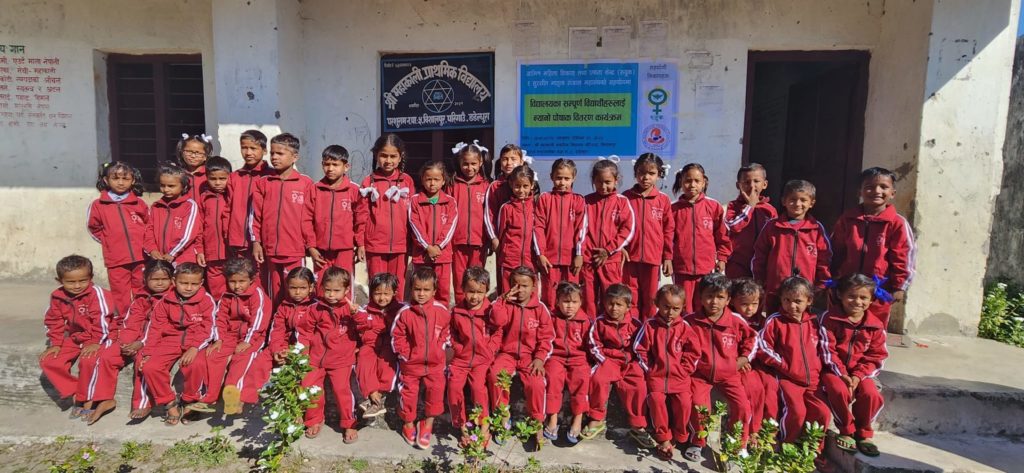Fostering sustainable development in rural Nepal: Q&A with RUWDUC
Written by Olivia Nater | Published: February 28, 2023
Through our Global Partners program, Population Connection supports a growing number of grassroots organizations around the world working to increase access to education, public health and family planning services. Their efforts make a vital difference in their local communities and represent the “final step” in our shared work to make the world a more just and sustainable place for everyone.
Get to know our wonderful partners in this Q&A series! Here, Founder and Executive Director of Rural Women’s Development and Unity Center (RUWDUC), Kamal Rawal, discusses his organization’s work to support rural development programs in environmental conservation, health care, and women’s empowerment throughout the far-western region of Nepal. RUWDUC was established in 1995 with the objective of giving a voice to the voiceless, particularly women, children, and youth from the most disadvantaged communities.
What prompted you to start your organization?
RUWDUC came to life with the belief that appropriate motivation and training for women, children, and youth groups can turn them into important catalysts and facilitators in community and regional development. Our programs therefore target community women, children, and youth, as we strongly believe that the role of these two important groups has been overlooked, particularly in the development process of the far-west region of Nepal.
What programs or projects are you currently working on?
We’ve been implementing the following projects:
Water conservation:

Our Transboundary Rivers of South Asia (TROSA) project aims to ensure that riverine communities uphold their rights, build their resilience, and participate in water resource management.
Crisis support:
Our Children’s Home in Kanchanpur was established in April 2003 to serve at least 12 girl children who were victims of conflict, gender-based violence (GBV), and other forms of violence. These girls have been able to continue their education from primary to secondary level.
RUWDUC has so far constructed 15 homes for economically marginalized families who were affected by the COVID-19 pandemic. Our goal is to construct 50 homes.
Nepal has a high infant and child mortality rate. Working with the local hospitals, we constructed Nutrition Rehabilitation Homes, where malnourished children are referred. Here, both mother and child have the opportunity to stay to help restore the child’s health. During this period, the caretaker (usually the mother) also receives education and counseling around children’s health needs.
RUWDUC also supports the victims of floods, landslides, and Covid-19 with food rations, sanitation items, warm clothes, and shelter.
Education and training:
Our Girls’ Education Project aims to help girls from remote areas continue their education and avoid child marriage. We’re also working on stakeholder engagement to achieve policy change in this area.
Our Panda Pack Project supports around 6,000 students from low-income families in government schools with school bags, stationery, and sanitation items to support the continuation of their studies.
What do you hope to achieve in the next five years?
In the next five years, we hope to influence policies to support children and girls. We’d also like the local government to take ownership of our projects to ensure their sustainability. We’re hoping to expand our economic empowerment activities to support more children, young people, and women from low-income households. We envision training 20-30 youth and women leaders to help advance our community initiatives.
What have been some of the greatest challenges you have faced?
Our communities need more economic empowerment activities but due to lack of funds we have not been able to fulfill all their needs.

What are you most proud of?
We’re proud of how many people we’ve helped. For example, thanks to our work, 4,165 severely malnourished children have received nutritious food and access to medical care. We’ve helped close to 10,000 community members access medical treatment, including health checkups and pre- and post-natal care. We’ve provided disaster relief to more than 300 families and helped more than 100 child survivors of GBV and conflict gain safe accommodation and schooling. Another 100 students from marginalized families are benefiting from our scholarships. Our Women Empowerment Centers have helped women raise their voices against all forms of GBV, and more than 500 survivors have received psychosocial counseling. Our community mediation services have helped resolve close to 7,700 disputes.
RUWDUC has also helped economically empower many community members through capacity building and training. We’ve helped people get involved in the tourism industry and start or expand crafting, gardening, and farming businesses, including beekeeping. We’ve also delivered workshops on disaster risk reduction and climate change, as well as first aid training, and improved sanitation at schools, such as through the construction of pit latrines.
Anything else you’d like to share with Population Connection members?
RUWDUC is skilled and experienced in many key areas, including gender and social inclusion, GBV, education, health, disaster risk reduction, governance, and economic empowerment. We also have good relationships with stakeholders.
To learn more about RUWDUC, visit their website and follow them on Facebook!
If you missed it, watch the recording of our webinar from February 9, 2023, in which Kamal discusses the scope of RUWDUC’s work in collaboration with Population Connection, and our Senior Analyst, Hannah Evans, shares a report from her site visit to Nepal:

